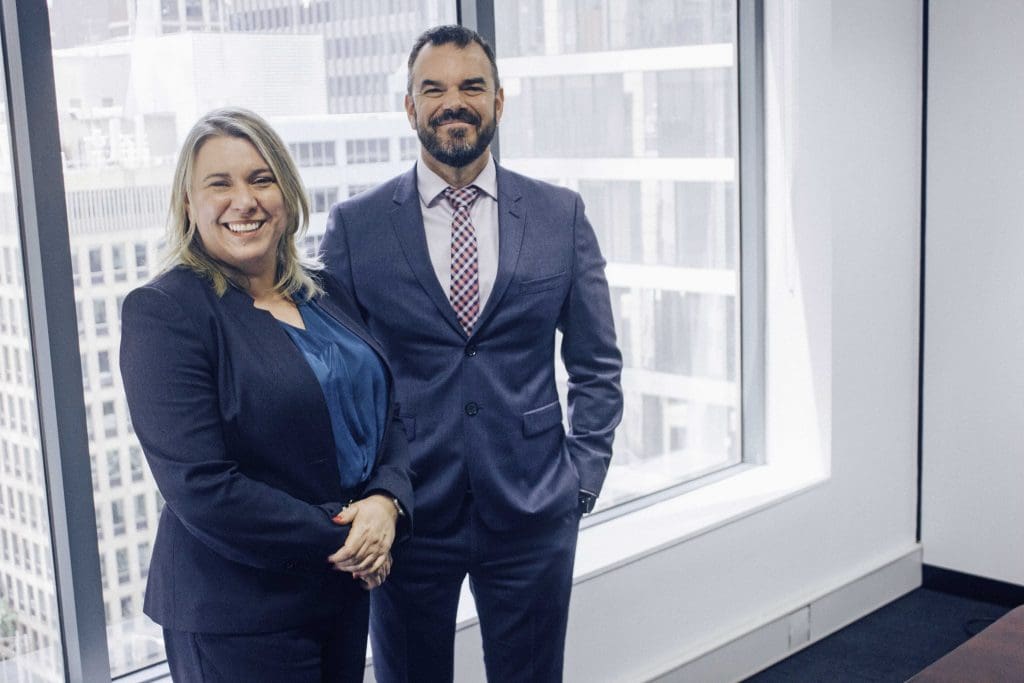Workplace investigations are a necessary tool in an organisations’ tool kit. Done well, they are
procedurally fair, independent enquiries into the circumstances of a particular conflict, making
findings of fact that enable an organisation to make informed and sensible decisions about managing
the risk of the conflict or complaint can inflame existing tensions, contribute to the breakdown of
working relationships and further traumatise employees to the point of them taking significant time
off work.
For these reasons, it is important that any investigation into workplace complaints is sensitive to the
trauma that may be suffered by those participating in the investigation. At the very least, a
workplace investigation must do no further harm to the participants. This is particularly important in
case of complaints around sexual harassment or bullying where the participants are more likely to be
traumatised.
Trauma and memory in the workplace
“Trauma can arise from single or repeated adverse events that threaten to overwhelm a person’s
ability to cope.”
In a workplace, trauma can arise in situations of workplace violence, bullying, harassment, sexual
assualt or harassment as well as workplace accidents. There are a number of ways that an
organisation can be trauma informed when dealing with investigations of workplace complaints.
Organisations can ensure that their complaints processes are trauma informed, and implementing
principles that foster safety, trust, awareness, and choice. Organisation should ensure that they do
not retraumatise participants and that there is appropriate support for affected employees after the
complaints process has been completed. These broader concerns will be the subject of another blog!
Trauma impacts each individual differently, but studies have shown that that trauma disrupts the
formation of memories and recollection of the traumatic event .
Memories can be fragmented, distorted and don’t necessarily form along a timeline. Given that a workplace investigation is generally concerned with determining the facts, the who, what, where, when, and why of the matter,
investigators must be aware of the possible effects of trauma on the memory of the witness and not
draw unfair conclusions about a witnesses credibility if the witness is unable to draw a linear
narrative of the traumatic event.
Trauma Informed Investigation Interviews – Practical Suggestions
In conducting the actual workplace investigation, there are a number of practical considerations that
an investigator should take into account.
Participant Safety is Key
Investigators need to think carefully about the safety of the witness and ensure that the investigation
does not do further harm. It’s a good idea to ensure that the interview takes place in a neutral place,
away from the possibility that the witness might encounter the respondent. The investigator should
emphasise that the interview will occur at the witness’s pace, that they can ask for a break, come
back to the matter on a different day and that they should let the investigator know if they are
becoming overwhelmed.
For particularly traumatised witnesses, sometimes a preliminary visit to the interview room (or Zoom
call with the investigator) to explain what they can expect in the interview and to familiarise
themselves with the physical environment of the interview may assist. Participants should be offered a support person and, if necessary, have their attendance at the interview cleared by their treating medical practitioner.
Online interviewing presents special challenges. It’s useful to check with the witness that they feel
safe and private at home (or wherever they are for the online interview) and to tell them that they
can end the interview if that changes. In situation where you are concerned about the ability of a
witness to be interviewed in private, it can be useful to have a prearranged signal if they want to tell
you that someone is listening to the conversation at their end.
Give Information, Control and Choice
Providing witnesses with some control and choice over the investigation will assist the witness to feel
empowered in the process. Ensure that you are providing as much information about the process as you can, including the roles of everyone involved in the investigation, the steps involved in investigating a complaint and the
confidentiality of the process. It is difficult to retain information in stressful situations so it is useful to
have a guide for participants which sets out the information in writing.
Giving a witness a choice of interview time and place and even choices around where they sit in the
interview room can help. Investigators should be patient in the way they collect evidence from the witness and allow them to tell their story in their own way.
Spend time building rapport
Rapport is important regardless of who you are interviewing, but for trauma-informed interviewing,
it is vital to ensure tha the witness feels comfortable with the investigator, the process and in the
space of the investigation room. Taking some time to introduce yourself, to find out more about the
witness and to ease into the investigation will assist in relaxing the witness and helping them to recall
circumstances.
Demonstrating empathy in the face of witness emotion can be difficult for investigators as it is
important that we avoid the appearance of bias. Having a box of tissues and a glass of water on hand
helps. Statements such as, ‘I can see you are finding this hard to talk about, would you like to take a
break’ strike the balance between maintaining neutrality and being empathetic to the witness
distress.
Watch your Language when interviewing
Investigators need to spend more time than usual thinking about the questions that they will ask in a
trauma informed interview. Given what we know about memory, some of our usual interview techniques, for instance “Start at the beginning”, or “What happened next?” may not be useful as they assume that the memory is laid
down along a linear timeline.
Again, giving control to the witness over where to start is helpful. You could ask the witness where
they would like to start in the narrative and allow them to tell their story on their own terms from
this point. Avoid being too directive in your questioning and only move to the clarifying ‘who, what,
where, when, why, how’ questions once you have exhausted the narrative that the witness can give
you spontaneously.
Investigators should avoid any suggestion of victim blaming in their questions. Witnesses should not
be asked what they were wearing or what they did to provoke or defend themselves from an attack.
Even a situation where an investigator asks “What did you do?” in response to a witness saying that
she was grabbed from behind, is problematic, as it assumes that the witness did something. Freezing
in traumatic situations is a common response, but a careless question from an investigator may make
a witness feel ashamed that they did not defend themselves and can lead to retraumatisation. A more neutral question “What else do you remember?’ would be a better choice in this situation.
To a large extent, the steps taken by a good investigator to ensure that witness is comfortable,
informed and engaged with the investigation process are very similar to the steps that we need to
take in a trauma informed investigation. The increasing understanding of the affect of trauma on
memory and recall adds to the toolkit of an investigator and assists them in their task of investigating
in a procedurally fair way
1 https://mhaustralia.org/general/trauma-informed-practice)
2. J. Douglas Bremner, MD. Traumatic stress: Effects on the brain, Dialogues in Clinical Neuroscience, (2006) and
Jim Hooper, PhD, Sexual Assault and Neuroscience: Alarmist Claims vs. Facts, Psychology Today, (2018);
available at https://www.psychologytoday.com/blog/ 03/11/2021
Worklogic | Training
Conducting Effective Workplace Investigations

Whether you are an HR professional, manager or compliance officer, you may need to conduct an in-house workplace investigation in the future, or already have conducted one. This practical course gives you the knowledge and skills needed to conduct an effective, fair and legally sound workplace investigation.
Our most popular course, Conducting Effective Workplace Investigations runs regularly in our public course program but can also be presented in-house for you organisation , for six or more participants. Contact us to fin out more.

